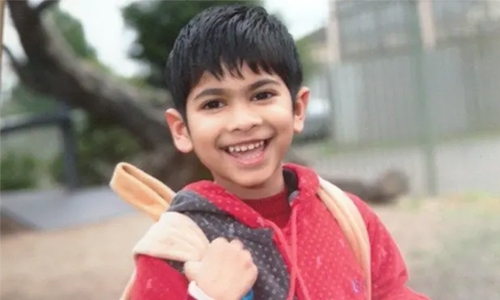Five-year-old boy facing deportation from Australia because of mild disability
A five-year-old boy born in Australia is facing deportation to Bangladesh with his family after their visa applications were refused because his “mild disability” would be a burden on the medical system. Dr Mahedi Hasan Bhuiyan arrived in Australia on a student visa in 2011.
He and Rebaka Sultana married the next year in Bangladesh and she joined him in Australia in 2013. Later that year their son, Adyan, was born at a Geelong hospital. A few months after his birth, Bhuiyan and Sultana noticed Adyan was struggling to lift up his head. Tests revealed he had a mild cerebral palsy, likely caused by a stroke shortly before or after his birth. Bhuiyan, who has a Bangladeshi degree and a South Korean masters, finished his PhD in engineering at Deakin University in 2016.
He was granted a Victorian state government nomination for a permanent skilled migration visa, which would allow his family to build a life in Australia. However, because of Adyan’s disability, it was rejected under Australia’s strict “one fails all fail” visa health criteria. Bhuiyan’s family appealed the rejection through the administrative appeals tribunal. Two-and-a-half years later, the AAT upheld the refusal, noting it was “bound to accept” the findings of Adyan’s medical assessments in 2016 and 2019.
The 2019 medical assessment found Adyan had a “mild functional impairment” which was likely permanent, and would likely require community services “including but not limited to additional support at school”. “I do not have any idea why a kid having little weakness in his left hand will need special education,” Bhuiyan said. “As far as I can understand, special education is required for those who are unable to attend in the mainstream schools.”
A separate medical assessment seen by Guardian Australia says Adyan is independently mobile and only requires a support rail to navigate steps and uneven surfaces. It notes he is very vocal, enjoys playing with a soccer ball and has developed movements to adapt around his disabilities. It does not assess cognitive function, which the report recommended prior to starting school, and does recommend continued therapy support in Australia or Bangladesh.
Related Posts

